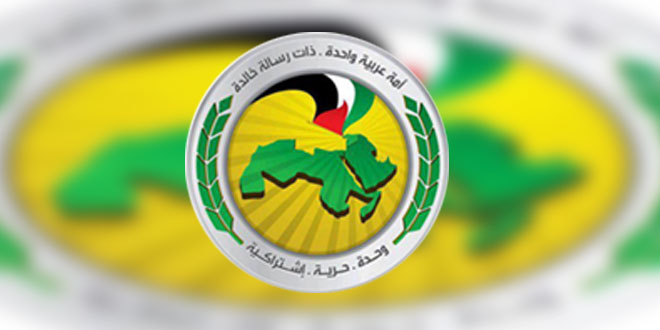About the renewed Baath and the new state model
9-January-2024
Bassam Hashem
It is quite clear that Comrade al-Assad’s speech at the opening of the session of the Baath Party Central Committee overturned the almost extinguished embers of internal life, and unleashed the imagination of many in approaching the future of Syria during the next stage, and some even rushed to express their views and donate evidence and examples.
There is no doubt that His Excellency’s speech represented a kind of surprise for many, but it is an expected surprise in any case, as Comrade Assad is the most knowledgeable about the Syrian “biological clock” – if such a term can be used – and he is the most knowledgeable about the local, regional and international contexts and circumstances that make any internal decision A successful step or initiative, in its timing, while emphasizing that any decision is – in the final outcome – a purely local measure that stems from, and is in the national interest.
As a reminder, the reform project has been at the heart of the thinking, work and ambition of Comrade the Secretary-General since he assumed the General Secretariat of the party and the reins of the presidency. He realized from an early period that true – and “safe” – reform must pass through the Baath Party, or through it, as it is the popular and organizational force that penetrates all social and economic strata (and we will not say classes, as there is no class conflict in Syrian history); This is because the “Baath” derived its presence and role mainly from the fact that it was a national formation that crossed sects and components, and included, in the first place, a unifying, unifying message.
The big question that arises here: Will the Baathist cadres live up to the historical responsibility assigned to them in the “post-war phase” (even though the war has not ended, and will not end as long as the Arab conflict with Zionism continues, and Syria adheres to its rights and principles)? Do we act as if the matter involves a complete break with the past and engaging in building a new model for the state… any model?
Many may imagine that the issue means nothing other than turning one’s back on the past and throwing oneself into the arms of a “civil state” (that is what they call it!) emptied of any doctrinal or “ideological” content, or even “religious,” civilizational, or “messaging,” and he goes on to say: Some people go further in talking about a “state without teeth” that is content with United Nations documents to defend its interests… a state that has been so weakened by the blockade and sanctions that it must be content with making a living, and that the outcome of the last decade is enough to lead us indifferently to such a model based on a “culture of living,” or “Culture of Life,” which has become a popular vehicle for all pragmatists and defeatists who spend their political culture in the service of promoting normalization with “Israel,” or calling for a hand in the resistance, and joining – subsequently – the “other” camp… meaning abandoning Syria, the “difficult number.” And “the red line,” and “the role that cannot be crossed,” and “the citadel of steadfastness,” and other “literature” that abound in political discourse in Syria, ignoring the fact that the war began with one existential enemy, which is “Israel.” But today, after more than a decade, we are facing hordes of “enemies” no less ferocious, ambitious, and aggressive, and we are in the middle of a shattered, disintegrating Arab environment, and a regional environment that plays on ethnic and sectarian extremism, pursues settlement and land seizure, and results in an open expansionist tendency, and that living In the Middle East, it has become more costly and burdensome in many ways, political, economic, social, and even moral, and if we are talking about freedoms, it is because we want to build a more robust national state, a more cohesive and self-immune society, and the ability to defend itself and its gains… a strong national state according to standards. Contemporary, and a society that aspires to modernization of civilization in its most elevated and progressive forms.
Syria will not be neo-liberal as some imagine, and it will certainly not be fanatical, reactionary, or nationalist extremist. It will be a kind of conservative liberalism, adhering to the family, societal, spiritual, and political customs and traditions of the Arab East, to which the “Baath” was one of the biggest contributors to its historical process. The important thing is that this is based in large part on the model of change that the Baath will adopt for itself, and let us say it will begin with, not through “guardianship” or “Article Eight,” but rather because the “renewed Baath” will be the crucible that will re-melt all the components of what comes after “victory in the war.” And “victory over war,” within the framework of the concept of “civilized patriotism,” which in turn is derived from “civilized Arabism,” in its reciprocal relationship with Arabism, with its linguistic and cultural spaces, with Arab Islam, and with Eastern Christianity, which Comrade the Secretary-General has always addressed on various occasions. Many, in different formats.
It will not be a “resurrection of apostasy,” nor “apostasy.” It will be more like a return to the spirit of the Sufi and enlightening beginnings that inspired Syrian and Arab youth in the midst of the battle for independence that accompanied global transformations and the building of new worlds, more or less eighty years ago.

